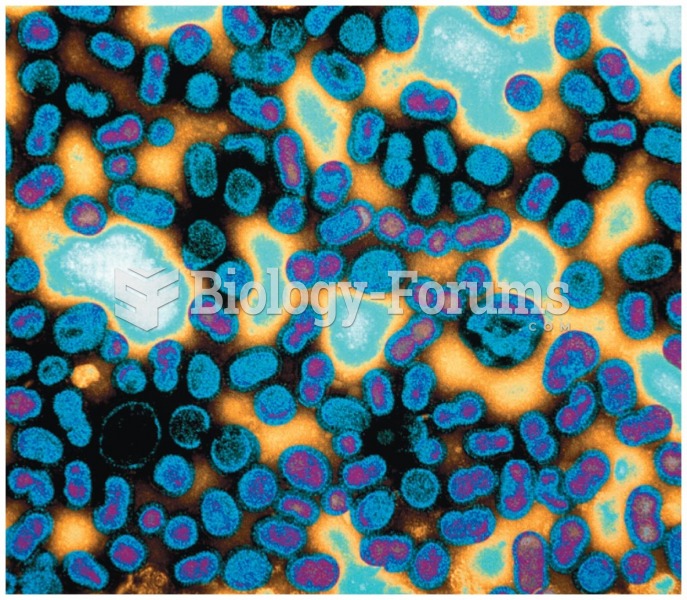|
|
|
Bacteria have flourished on the earth for over three billion years. They were the first life forms on the planet.
Urine turns bright yellow if larger than normal amounts of certain substances are consumed; one of these substances is asparagus.
Once thought to have neurofibromatosis, Joseph Merrick (also known as "the elephant man") is now, in retrospect, thought by clinical experts to have had Proteus syndrome. This endocrine disease causes continued and abnormal growth of the bones, muscles, skin, and so on and can become completely debilitating with severe deformities occurring anywhere on the body.
More than 4.4billion prescriptions were dispensed within the United States in 2016.
The types of cancer that alpha interferons are used to treat include hairy cell leukemia, melanoma, follicular non-Hodgkin's lymphoma, and AIDS-related Kaposi's sarcoma.







